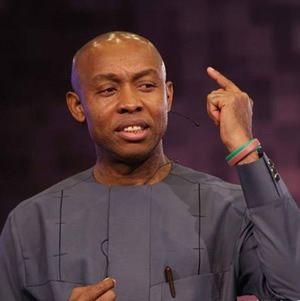A former Chairman of the National Human Rights Commission, Professor Chidi Odinkalu, has openly criticized the National Judicial Council (NJC) for its recent disciplinary decisions against three federal judges, saying the move shows the NJC is failing to properly deal with corruption in the judiciary.
The NJC had, on Wednesday, announced the suspension of three judges—Justice Jane Inyang of the Court of Appeal (Uyo Division), Justice Inyang Ekwo of the Federal High Court (Abuja Division), and Justice Aminu Baffa Aliyu of the Federal High Court (Zamfara Division). Each of them received a one-year suspension and was placed on a watch list, ranging from three to five years. During this period, they are barred from receiving any form of promotion.
Professor Odinkalu, who has consistently spoken out against the problem of corruption in Nigeria’s judicial system, reacted strongly to the NJC’s decision. In a series of posts on social media, he said the punishments were too soft and sent the wrong message.
“Jane Inyang became Justice of Court of Appeal in Sept 2023, less than two years ago. Yesterday, NJC suspended her for just one year for egregious acts of judicial corruption while she sat in Federal High Court. How can she still be a judge?” he questioned.
He also criticized the elevation of Justice Inyang, describing it as part of a last-minute effort by former Chief Justice Olukayode Ariwoola to promote certain judges before his retirement in 2024.
Referring to Justice Ekwo, Odinkalu wrote, “The only miracle in the case of Inyang Ekwo is how he has remained on the bench until now… Now, he has been suspended for delivering judgment without hearing parties!”
Odinkalu notes that many people may see the NJC’s action as a positive step, but according to him, these punishments are signs of a much deeper problem in the system. He questioned how judges who are known for questionable behavior are even allowed to remain on the bench or get promoted in the first place.
He said, “If a judge can behave with such manifest impunity and disregard for the basic rules of judicial comportment… and still remain a judge – that’s what suspension for one year means – what would it take for a judge to be relieved of their position? Maybe commit murder?”
Professor Odinkalu also raised a serious concern about Justice Inyang’s elevation to the Court of Appeal while misconduct complaints were still unresolved, pointing out that the suspension does not block her path to the Supreme Court in the future.
“In plain language, the NJC is now deeply complicit in judicial corruption,” he wrote, adding that the council is giving out “irresponsible slaps on the wrist” without thinking about the long-term harm to public trust in the justice system.
He concluded by saying that unless the NJC is reformed or replaced, the problem of judicial corruption will continue unchecked.
“If you read this, just ask NJC one question: if a judge is suspended for one year without pay, what is the person doing coming back to be a judge? If anything, the person is more likely to come back more hungry and more corrupt.”










